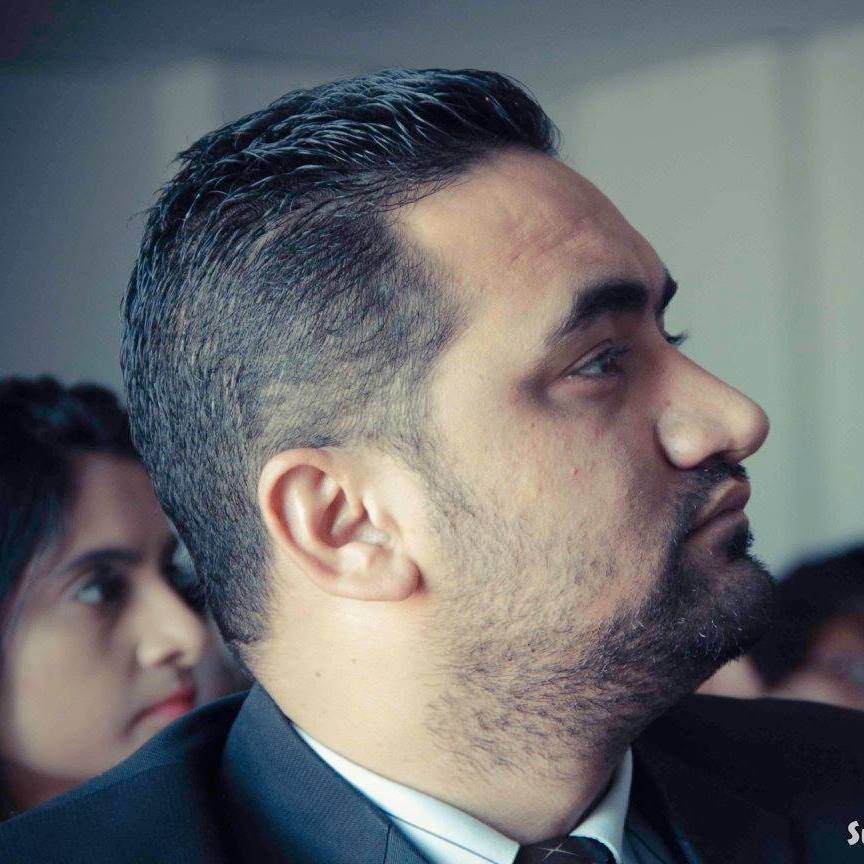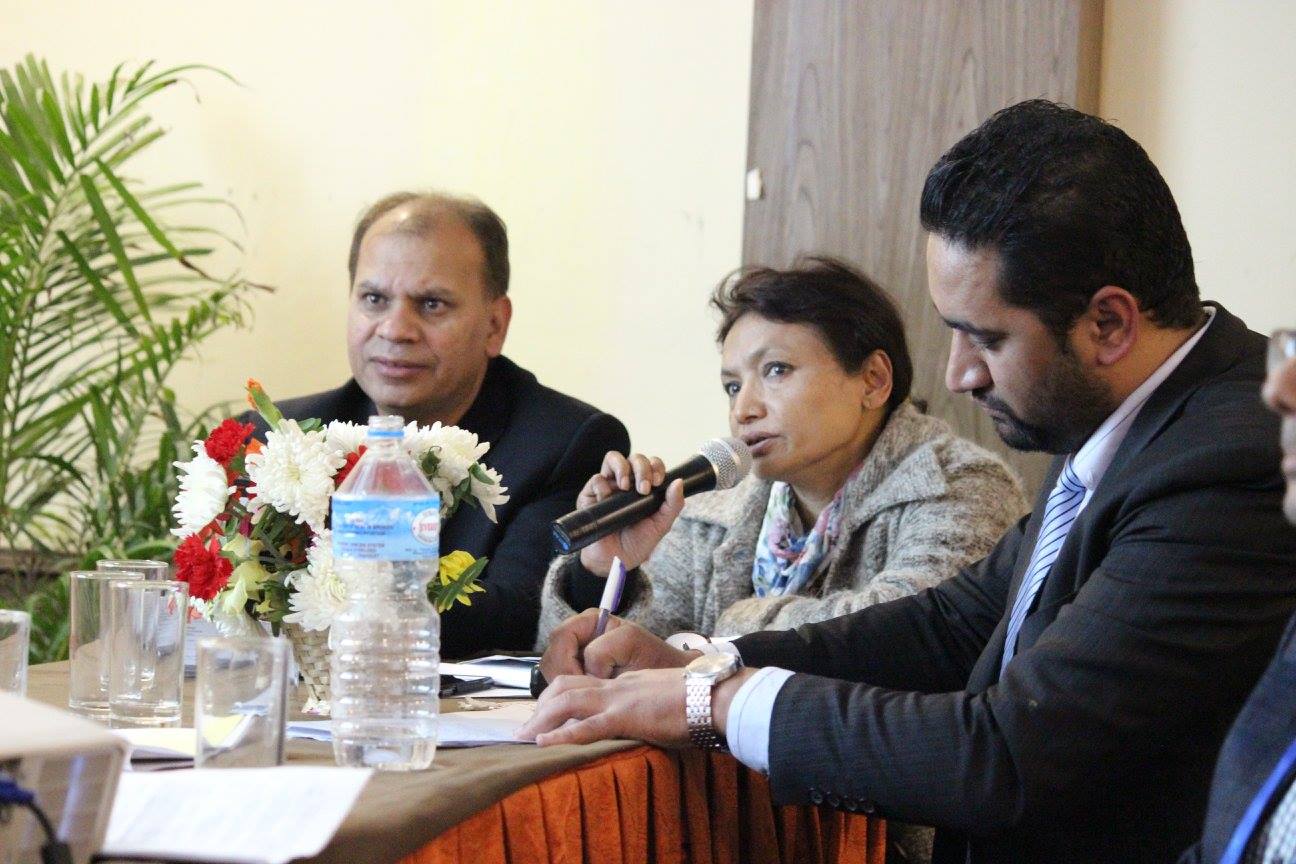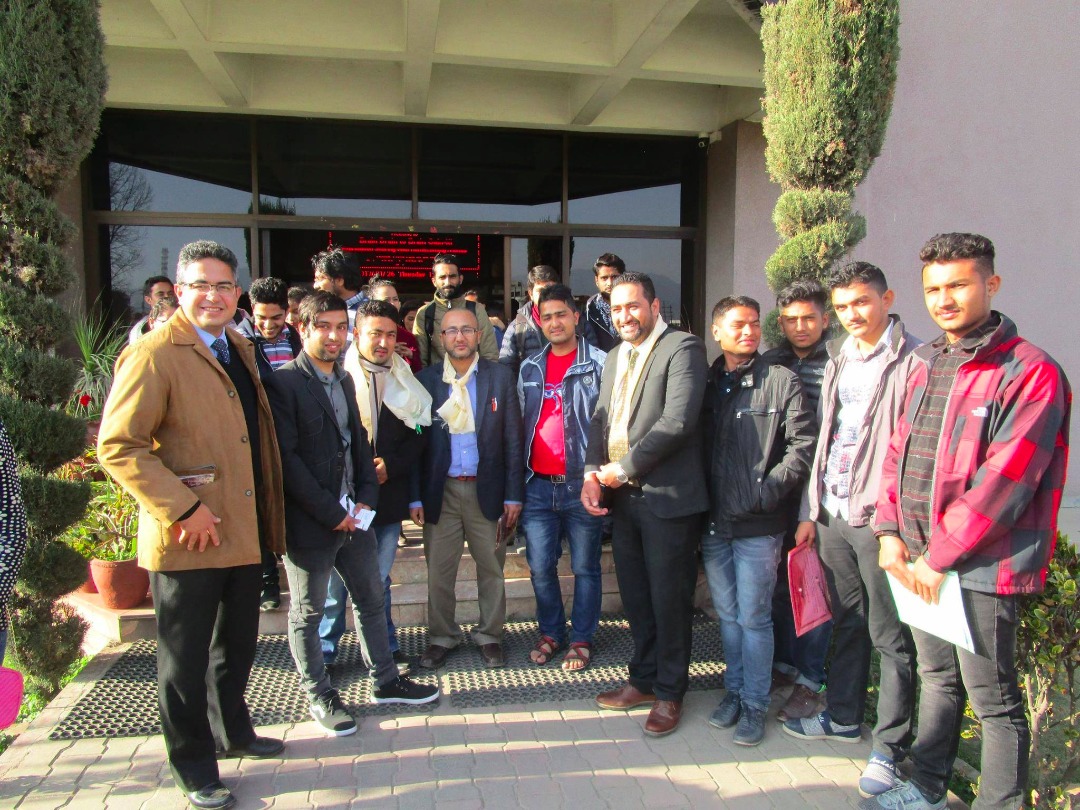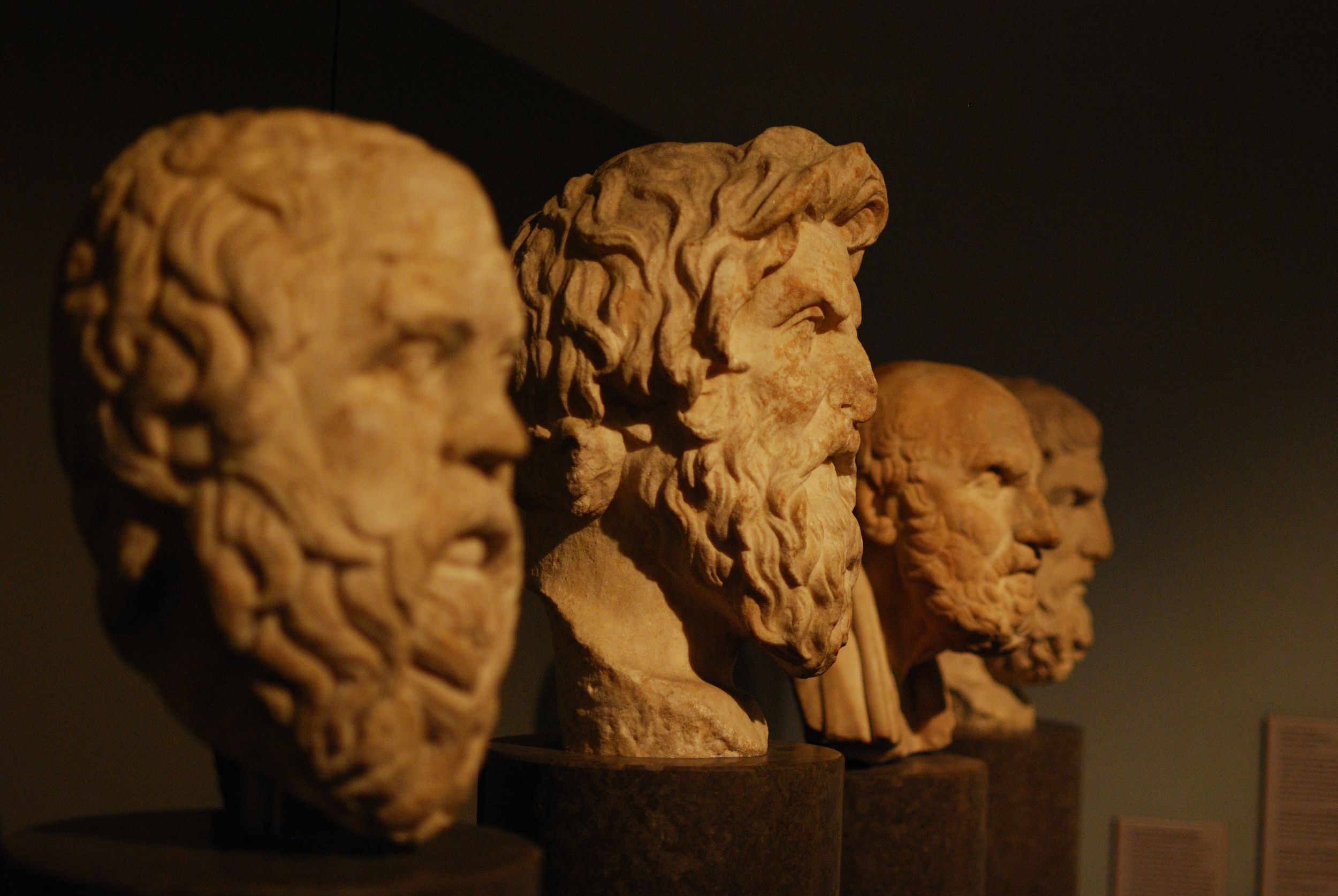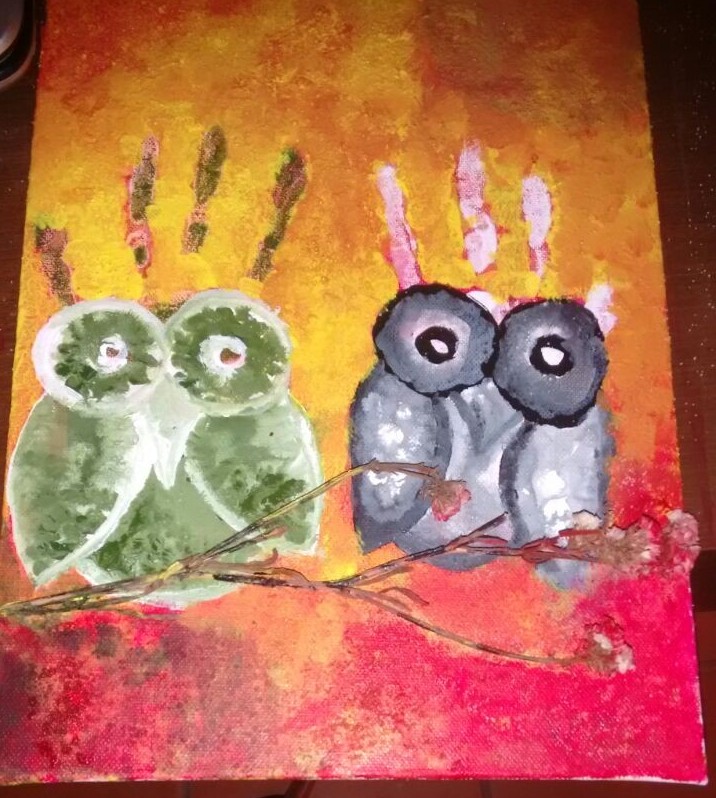Dr. Niranjan Koirala is an academician-researcher-entrepreneur-social worker from the beautiful city Pokhara of Nepal which is located landlocked between India and China. Dr. Koirala received his Ph.D. in Biochemistry-Pharmaceutical Engineering (2016) from Sun Moon University, Republic of Korea. He is an expertise in the field of Microbial-Industrial-Pharmaceutical Biotechnology. Dr. Koirala is currently serving as the Head of the medical biochemistry department at a Pokhara University affiliate college, Kathmandu, Nepal and he is also the Founder President and Research Director at Dr. Koirala Research Institute for Biotechnology and Biodiversity (Dr. KRIBB), an NGO Located at Kathmandu, Nepal.
Let’s listen to his success story and his journey till date as a young and dynamic researcher and visionary.
Your passions and interests?
Research is my passion and interest. I have the experiences of working in the field of medicinally important plant natural products like anthraquinones, flavonoids, isoflavonoids, anthocynins, etc and microbial natural products like avermictin, doxorubicin, streptomycin, etc. All these bioactive anti-cancer and anti-microbial compounds were produced using Escherichia coli and Streptomyces as the dynamic production hosts. My research works are collaborated with the Mexican, Vietnamese, Korean and Nepalese research groups till date and its expanding more as I learn to move ahead in my research. I like to work on research projects producing high quality publications and patents focusing on compounds to cure the big “C” i.e cancer. As most of the pharmaceutically significant drugs comes from the natural system currently I am interested in the biodiversity to explore, conserve and harness the rich resources inside the nature.
What is your focus areas?
My major research focus includes anti-cancer drugs discovery, natural products chemistry, system engineering and synthetic biology including but not limited to genome mining, gene isolation using PCR, cloning and protein purification, enzyme characterization, gene deletion, metabolic engineering, metabolic co-factor channeling, strain development and engineering, synthesis using enzyme biocatalysis, production optimization, bioprocess-fermentation technology, phytochemicals, herbal and natural products isolation, modifications, elucidate and quantify using HPLC, ESI-MS, GC-MS and NMR analysis, and testing their biological activities like anti-cancer, anti-melanogenesis, anti- tyrosinase, anti-inflammatory, antioxidant, etc.
Scientific Contributions?
As a Ph.D. scholar, I focused on the anti-cancer assays and modifications of secondary metabolites by methylation and glycosylation processes using system metabolic engineering approaches and designed Koirala’s Double Effect. Koirala’s Double Effect is the modification of natural products by methylation and subsequent glycosylation processes. This effect maximizes the drugs stability by methylation and solubility by glycosylation. Research works I have completed till date have been cited by international scientific community (Citation: 160; h-index: 7; i10-index: 7, as indexed by Google Scholar).
Particularly my work published in the Journal of Biotechnology (Koirala et al. 2014) has been taken as a reference blueprint article to produce further research works by Chiang and colleagues (Chiang et al. 2015) where they performed to produce two novel methoxy-isoflavones from biotransformation of 8- hydroxydaidzein using SpOMT2884 enzyme which our group isolated and submitted in gene bank (GenBank protein database accession number KF420279). Various other research works have been cited and have proved to be useful to carry further research in this field. My research works have been cited by internationally reputed journals like Nature, Metabolic Engineering, Applied Microbiology and Biotechnology, Natural Product Reports, Biotechnology Advances, Molecules, Biotechnology Journal, Enzyme and Microbial Technology, Protein Expression and Purification, etc. Moreover, most of the research works I have carried out are under patent pending status.
Related: In Shoes Of… ‘A Scientist’
Publications and Conferences?
I have more than a dozen of International publications mostly published in internationally reputed indexed journals like Journal of Biotechnology, Journal of Industrial Microbiology and Biotechnology, Enzyme and Microbial Technology, Biotechnology and Applied Biochemistry, World Journal of Microbiology and Biotechnology to name a few selected ones. I have been invited and participated in many national and international conferences. The conferences includes the Third International Conference-Kathmandu Symposia on Advanced Materials, organized by Nepal Polymer Institute in association with Pokhara University, Nepal Academy of Science and Technology (NAST) and Institut für Polymerwerkstoffe (IPW), Merseburg, Germany; International Conference on Emerging trends in Biological, Physical and Chemical Sciences, organized by Biologix Research and Innovation Centre Pvt.
Ltd (India) and Biotechnology Society of Nepal (BSN); First International Conference on Bioscience and Biotechnology, organized by Research Institute for Bioscience and Biotechnology, (RIBB) in association with Asian Federation of Biotechnology (AFOB) and The World Academy of Science (TWAS) to name a few selected ones.
International and National medals and awards?
I have been awarded twice with the best poster presentation award and best oral presentation award in the International conferences; Nepal Bidhya Bhushan “A” medal from the honorable President of Nepal; Dean’s Choice award (Gold medal) awarded by Sun Moon University, South Korea; BRICPL Young Scientist award awarded by Biologix Research and Innovation Center, India; Shreepati Koirala Memorial Academic award, Certificate of appreciation by Koirala Welfare Society-Kaski, Nepal to name a few selected ones. I am the lifetime member of Biotechnology Society of Nepal and editor for the Nepal Journal for Biotechnology published by the Biotechnology Society of Nepal. Along with research, I have experiences in supervising and mentoring undergraduate and graduate students. I have already supervised 8 undergraduate students for the completion of their thesis required by the Pokhara University. I am also serving in the editorial and reviewer board in several international journals.
After returning from Korea you established a research NGO Dr. Koirala Research Institute for Biotechnology and Biodiversity (DR. KRIBB). Tell us something about your NGO.
The Dr. Koirala Research Institute for Biotechnology and Biodiversity (DR. KRIBB) is a not for profit, non-political and socially responsible research institute. The DR. KRIBB has a vision to strengthen Nepal’s and SAARC regional biodiversity position globally using biotechnological approaches. The Dr. KRIBB officially opened its doors in 2017. During the service period DR. KRIBB will persue to receive grants from various national and international communities, NGOs and INGOs, Ministry of Science and Technology, NAST and UGC aiming at generating the next generation of biotechnological products from our ultra-rich biodiversity- and one facilitating further internationalization of DR. KRIBB. Our vision/target today is to make DR. KRIBB, a multi-site operation foundation with over 100 people associated in different level of jobs. DR. KRIBB will offers excellent research opportunities for Undergraduates, Masters by research and PhD Scholars in collaboration with leading universities in Nepal or abroad within the field hereby addressing the pressing need for a critical mass of well-trained, talented scientists and engineers, who can advance the development of biodiversity via biotechnology.
Regular scientific talk programs viz. “Bio-Talk” and “Bio-Voice” will be the flagship talk series of DR. KRIBB along with several episodes of workshops, seminars, webinars and national-International conferences. Every research outcome will be scientifically evaluated for possible international publications, patents or business development for commercialization and biodiversity conservation.
Reason for choosing Biodiversity?
I believe not only Nepal but the world has now become the home for lots of endangered plant and animal species. Nepal itself has 840 different species of wet-land, migratory and residential birds which amounts to 8% of the world’s population of birds. Nepal hosts more than 7000 species of plants among which more than 700 are medicinally important species. Data shows that in Nepal many animal species are on the brink of extinction which includes but not limited to Royal Bengal Tiger, One horned rhino, Snow – Leopard, Red Panda, Brown Bear, Assamese Macaque, Gangetic Dolphin, Wolf, Wild Elephant, Giant Horn – Bill, Swamp Deer, Wild Yak, Tibetan Antelope, Black Buck, Four Horned antelope, Musk Deer, Pigmy Hog, Haspid Hare, Pangolin, Gharial, Indian Bustart, Saras Crane, Impean Pheasant, Python etc.
We all live here on the Earth and we should have lived in harmony but that’s not happening right? We don’t have two mother Earths too. If we think we are knowledgeable and wise species living on earth then we might be wrong. As a wise men we should have nurtured, protected and promoted the weak species. But why are they on the verse of extinction then? This is due to our unhealthy competition for power and money. Mankind has damaged and destructed the house to millions of species for building roads, apartments, vehicles, furniture and for various commercial purposes. We have eaten these plants, animals and birds like anything every time as our delicious foods. I say we need meat so that we can fulfill our protein-essential amino acids needs but killing innocent animals and birds haphazardly for merry making, barbeque, ceremonies, anatomical spotters, experimental research purposes, poaching and smuggling will definitely not do any good to us ultimately. We need plants, animal and birds species like we do to our human species. They are all the part of the nature to maintain the food chain, ecosystem and balance the global warming.
Mission and Vision behind the Establishment of Dr. Koirala Research Institute for Biotechnology and Biodiversity.
Application of biotechnology to improve the crop plants, medicinal plants, livestock, and microbes and to get new products from various biological systems is a fast growing sector. This sector is expected to contribute up to 50% of the world economy in near future. The chief and critical raw material for biotechnology is the diversified living world which constitutes the biodiversity.
It is the combination of life forms and their interactions with each other and with the rest of the environment that has made Earth a uniquely habitable place for humans. Biodiversity provides a large number of goods and services that sustain our lives. Protecting biodiversity is in our self-interest. Biological resources are the pillars upon which we build civilizations. Nature’s products support such diverse industries as agriculture, cosmetics, pharmaceuticals, pulp and paper, horticulture, construction and waste treatment. The loss of biodiversity threatens our food supplies, opportunities for recreation and tourism, and sources of wood, medicines and energy. It also interferes with essential ecological functions.
Our need for pieces of nature we once ignored is often important and unpredictable. Time after time we have rushed back to nature’s cupboard for cures to illnesses or for infusions of tough genes from wild plants to save our crops from pest outbreaks. What’s more, the vast array of interactions among the various components of biodiversity makes the planet habitable for all species, including humans. Our personal health, and the health of our economy and human society, depends on the continuous supply of various ecological services that would be extremely costly or impossible to replace. These natural services are so varied as to be almost infinite. For example, it would be impractical to replace, to any large extent, services such as pest control performed by various creatures feeding on one another, or pollination performed by insects and birds going about their everyday business.
Related: In Shoes of a philosopher!!!
The loss of biodiversity often reduces the productivity of ecosystems, thereby shrinking nature’s basket of goods and services, from which we constantly draw. It destabilizes ecosystems, and weakens their ability to deal with natural disasters such as floods, droughts, and hurricanes, and with human-caused stresses, such as pollution and climate change. Already, we are spending huge sums in response to flood and storm damage exacerbated by deforestation; such damage is expected to increase due to global warming. The reduction in biodiversity also hurts us in other ways. Our cultural identity is deeply rooted in our biological environment. Plants and animals are symbols of our world, preserved in flags, sculptures, and other images that define us and our societies. We draw inspiration just from looking at nature’s beauty and power. While loss of species has always occurred as a natural phenomenon, the pace of extinction has accelerated dramatically as a result of human activity. Ecosystems are being fragmented or eliminated, and innumerable species are in decline or already extinct. We are creating the greatest extinction crisis since the natural disaster that wiped out the dinosaurs 65 million years ago. These extinctions are irreversible and, given our dependence on food crops, medicines and other biological resources, pose a threat to our own well-being. It is reckless if not downright dangerous to keep chipping away at our life support system. It is unethical to drive other forms of life to extinction, and thereby deprive present and future generations of options for their survival and development. Can we save the world’s ecosystems, and with them the species we value and the other millions of species, some of which may produce the foods and medicines of tomorrow? The answer will lie in our ability to bring our demands into line with nature’s ability to produce what we need and to safely absorb what we throw away.
DR. KRIBB Team and Board members?
DR. KRIBB believes in research combined with team work, leadership, dedication and perseverance with the motto “Rebooting nature via Biotechnology”. We have dedicated team members in Mr. Ramhari Giri (Vice-President), Mr. Mitesh Shrestha (Secretary), Ms. Neha Pokhrel (Treasurer), Ms. Asmeeta Khanal (Founder member), Ms. Sneha Pokhrel (Founder member) and Mr. Bivek Timalsina (Founder member). We are blessed to have Internationally reputed dignitaries as our respected advisory board members in Prof. Dr. Sarman Singh (BSc., MBBS, MD, DHA, FAMS, FRSC, FRSTMH, FATP, FSIIP, FIMSA, FAAVR) from All India Institute of Medical Sciences (AIIMS-New Delhi); Prof. Dr. Rameshwar Adhikari (MSc, PhD) from Central Department of Chemistry, Tribhuvan University, Nepal; Prof. Dr. Sergio Sánchez Esquivel (MBBS, MD) from National Autonomous University of Mexico; Dr. Sailesh Malla (MSc, PhD), researcher at Novo Nordisk Foundation Center for Biosustainability (NNF- CFB) at Technical University of Denmark and Mr. Mohan Krishna Shrestha (MA), appointed Ambassador Extraordinary and Plenipotentiary from Nepal to France with concurrent accreditation as Non-Resident Ambassador to Greece, Monaco, Portugal and Spain (June 2010 to August 2014). DR. KRIBB believes that the research we do is ultimately directed and handed over to our society. We have recently appointed our SAARC regional ambassador in Ms. Nidhi Nileema (MSc) who is also a double gold medalist in Biotechnology from Bangalore University, India. Ms. Nileema will make sure that the research outcomes and public awareness programs we do will be disseminated to maximum areas of the SAARC region. Now we are a balanced team and our spirit is high with social responsibilities and our research team is expanding. We welcome the new comers and all the aspirants who want to contribute towards biodiversity via biotechnology.
Message to the Scientific community, Ministries, Stake holders and upcoming researchers?
While governments should play a leadership role, other sectors of society need to be actively involved. After all, it is the choices and actions of billions of individuals that will determine whether or not biodiversity is conserved and used sustainably. In an era when economics is a dominant force in world affairs, it is more important than ever to have business willingly involved in environmental protection and the sustainable use of nature. Some companies have revenues far greater than those of entire countries, and their influence is immense. Fortunately, a growing number of companies have decided to apply the principles of sustainable development to their operations. For example, a number of forestry companies-often under intense pressure from environmental boycotts-have moved from clear-cutting to less destructive forms of timber harvesting. More and more companies have also found ways to make a profit while reducing their environmental impacts. They view sustainable development as ensuring long- term profitability and increased goodwill from their business partners, employees, and consumers. Local communities play a key role since they are the true “managers” of the ecosystems in which they live and, thus, have a major impact on them.
Many projects have been successfully developed in recent years involving the participation of local communities in the sustainable management of biodiversity, often with the valuable assistance of NGOs and intergovernmental organizations. Finally, the ultimate decision-maker for biodiversity is the individual citizen. The small choices that individuals make add up to a large impact because it is personal consumption that drives development, which in turn uses and pollutes nature. By carefully choosing the products they buy and the government policies that they support, the general public can begin to steer the world towards sustainable development. Governments, companies, stake holders and others have a responsibility to lead and inform the public, but finally it is individual choices, made millions of times a day, that count the most.
Let’s conserve and harness our Biodiversity via Biotechnology.
Now that we have covered many major aspects of your scientific achievements and DR. KRIBB, as an academician what are your teachings & philosophy?
I bring a lot of energy to my class. If I can’t get excited about my subject, why should my students? The major course I teach is the curriculum in the biochemistry and biotechnology program and I work to make this course not just survivable, but interesting as well. Personal contact with students is essential to my approach. Many students need encouragement to talk to their teachers, so I emphasize my availability for informal discussion and my willingness to help them sort out any problems they have with what they are learning. Another important theme of my teaching is to emphasize the value of scholarship given to all the research students. I also encourage students to plan and write their own research papers to move beyond the mere description of the present state of research and to make constructive suggestions and research proposals. It is important for students and teachers to realize that the method of instructions and scholarship a student gets are allies in the academic enterprise. Better the instructions given, greater will be the impact on the GPA of the student for scholarship provision.
Finally, I aim to encourage a sense of wonderment in the world around us. Although I am a scientist and teach mostly science students, this is not, in my mind, an exclusive club. We are all scientists. We all wonder about the world around us. We must continue to ask the “how?” and “why?” questions in order to advance. Only if answers to these questions continue to come, will the questions continue to flow. Research and teachings are the part and the parcels of my life.
Related: In Shoes Of… A Traveler
